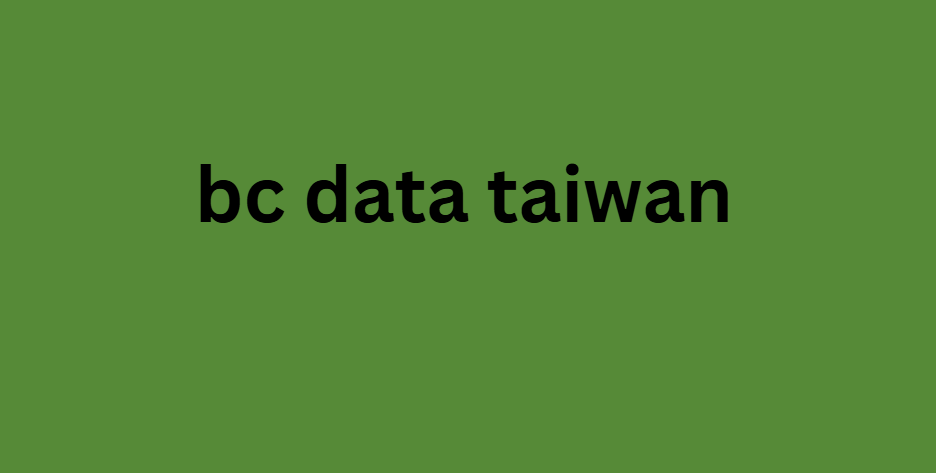Marketing outreach is no longer about casting a wide net and hoping for results. In today’s data-driven landscape, special databases empower businesses to implement targeted, effective, and scalable outreach strategies across diverse industries. Outreach Across IndustriesThese databases serve as tailored repositories of actionable insights, enabling marketers to connect with their audience more meaningfully.
1. What Are Special Databases in Marketing?
Special databases are highly curated collections of customer data designed to support specific marketing objectives. Unlike generic datasets, bc data taiwan they focus on detailed attributes such as:
- Demographics: Age, location, income, and more.
- Behavioral Insights: Shopping habits, engagement levels, and content preferences.
- Firmographics: For B2B, this includes company size, industry type, and key decision-makers.
By organizing and segmenting this data, Outreach Across Industries businesses can tailor their outreach efforts to resonate with specific audience segments, increasing the likelihood of conversions.
2. How Special Databases Transform Marketing Outreach
A. Precision Targeting
Special databases enable businesses to identify and focus on the right audience. For example:
- In retail, brands can target customers who have shown interest in specific product categories.
- In healthcare, outreach can be directed toward patients with particular needs based on past interactions.
Precision targeting ensures that marketing messages reach individuals most likely to engage, boosting ROI.
B. Enhanced Personalization Outreach Across Industries
Personalization is at the core of modern marketing. With special databases, businesses can craft messages that resonate personally with each recipient. Examples include:
- Sending location-based offers for retail stores.
- Recommending products or services based on purchase history.
- Delivering industry-specific solutions for B2B clients.
Personalized outreach not only improves engagement but also fosters brand loyalty.
C. Multi-Channel Optimization
Special databases integrate seamlessly with how to ensure a smooth transition various marketing platforms, allowing businesses to execute cohesive campaigns across multiple channels, such as:
- Email marketing.
- Social media advertising.
- SMS and mobile notifications.
- Direct mail campaigns.
This integration ensures a unified brand message and maximizes audience reach.
D. Scalability Across Industries
Whether in retail, healthcare, technology, th phone numbers or education, special databases provide scalable solutions. As businesses expand, these databases adapt by incorporating new customer segments and evolving data trends.
3. How to Build and Use Special Databases for Outreach Success
A. Data Collection
The first step is gathering accurate and relevant data. Sources include:
- Website analytics and user registrations.
- Customer surveys and feedback forms.
- Purchase history and service usage logs.
- External data providers offering industry-specific insights.
B. Segmentation
Divide the database into actionable segments based on criteria like:
- Geographic Location: Target specific regions or local markets.
- Customer Behavior: Identify frequent buyers or dormant leads.
- Business Size: For B2B, Outreach Across Industries segment by startup, mid-size, or enterprise.
Segmentation ensures tailored and effective outreach.
C. Campaign Integration
Integrate the database with your marketing tools, such as:
- Customer Relationship Management (CRM) systems.
- Email automation platforms.
- Social media advertising tools.
This integration streamlines campaign execution and enhances efficiency.
D. Continuous Improvement
Use analytics to evaluate outreach performance. Key metrics include:
- Click-through rates (CTR).
- Conversion rates.
- Customer acquisition costs (CAC).
Regularly update and refine the database based on insights to maintain relevance.
4. Industry-Specific Applications of Special Databases
A. Retail
- Example: A fashion brand uses databases to send tailored promotions based on customers’ shopping preferences.
- Benefit: Increased sales and customer retention.
B. Healthcare
- Example: Hospitals target patients with reminders for annual checkups.
- Benefit: Improved patient engagement and satisfaction.
C. Technology Outreach Across Industries
- Example: SaaS companies reach out to businesses interested in upgrading their subscription plans.
- Benefit: Enhanced lead nurturing and higher conversions.
D. Education
- Example: Universities use special databases to attract prospective students based on academic interests.
- Benefit: Higher enrollment rates.
Challenges and Solutions in Managing Special Databases
A. Data Privacy Concerns
Strict compliance with data regulations like GDPR and CCPA is crucial.
Solution: Clearly communicate data usage policies and secure user consent.
B. Data Overload
Large datasets can be overwhelming to manage.
Solution: Use AI-powered tools to organize and analyze data effectively.
C. Keeping Data Up-to-Date
Outdated information reduces database accuracy.
Solution: Regularly audit and update the database.


